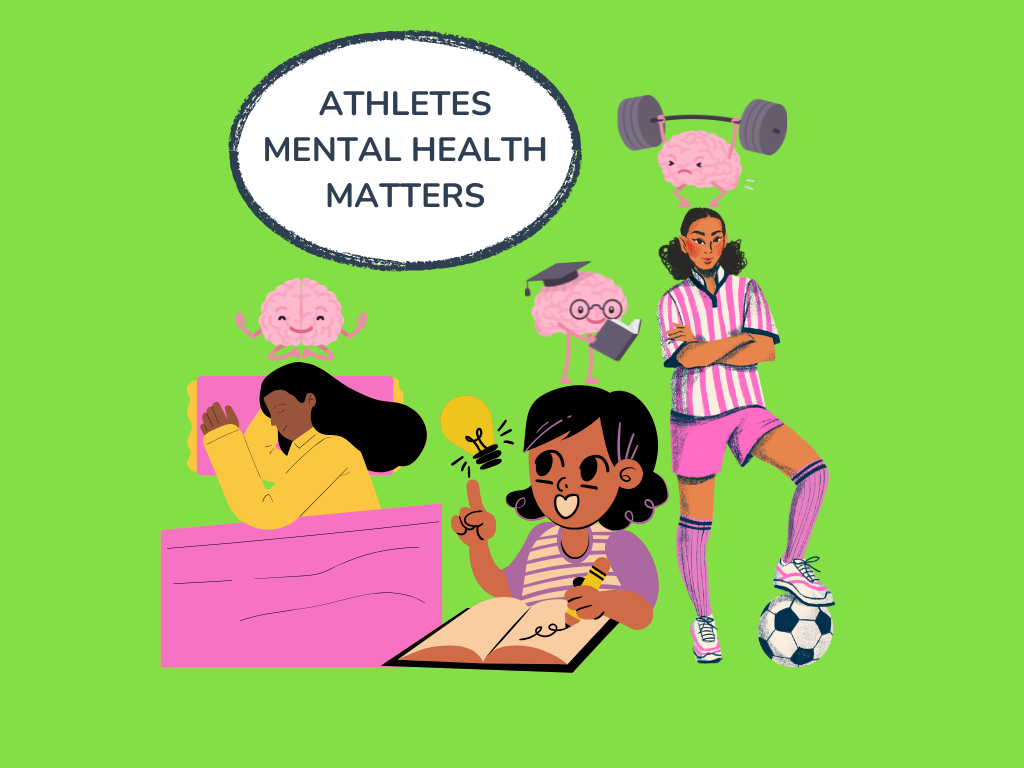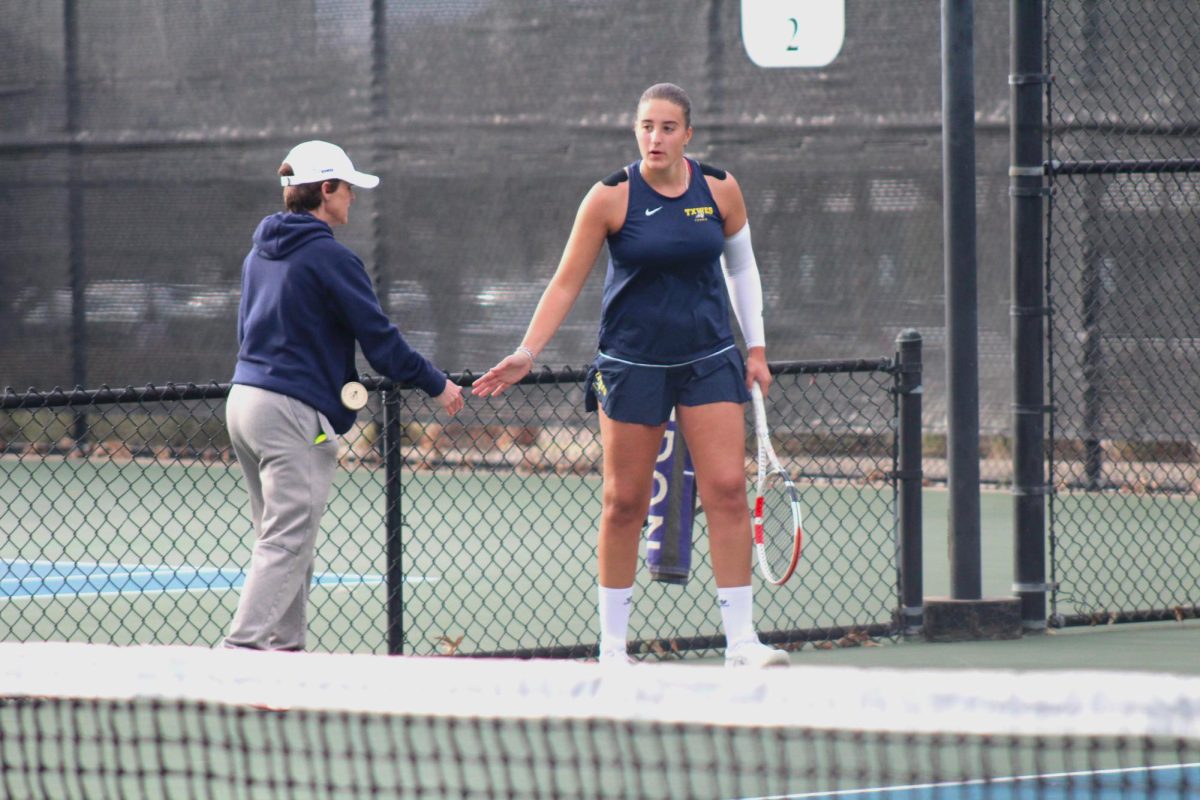Freshman women’s soccer midfielder Isabella Kingsakongthong sat on the edge of her bed, feeling the weight of her recent ankle injury—her second sprain in weeks. As her team prepared for their first conference game against John Brown University, she expressed frustration, “I just want to play,” she said.
Isabella, who majors in sports communication, said balancing soccer and academics had always been challenging, but the injury intensified the pressure. The stress from both school and sports affected her well-being.
“Academics haven’t been too stressful yet, but I procrastinate a lot,” Isabella said. “If you don’t feel good mentally, it affects everything—your performance in class and on the field.”
Isabella managed her stress through prayer, this spiritual connection offered comfort, but the support of her team was equally vital.
“I talk to God because he is in control,” she said. “My coach is very understanding. I feel like I can talk to him about how I feel.”
Women’s soccer head coach Katie Baugh emphasized the growing importance of mental health, particularly after the pandemic.
“I’ve learned to prioritize mental health and ensure the girls are okay,” Baugh said. “Before 2020, it wasn’t taken as seriously in sports, but I’ve seen a shift. Now, it’s crucial to understand and prioritize well-being.”
This perspective resonated with both Isabella and her teammate, first-year defender Kathryn Cameron. Cameron, an education major, shared her own challenges in balancing academics and athletics.
“Trying to stay on top of homework, especially with away games, is stressful,” Cameron said. “Stress makes me super anxious, and that impacts my performance.”
Both athletes recognized the need for increased mental health awareness in their environment. Despite the shift, Isabella and Cameron noted gaps in knowledge about mental health resources available to student-athletes.
“I know a little about the resources, but I wouldn’t know where to go if I needed help,” Cameron said.
Isabella echoed this concern, expressing a desire for more visibility and engagement from the athletic department.
“We need more interactions. I feel like I don’t know any of them,” she said.
As game day approached, Isabella committed to being proactive about her mental health.
“Having a dedicated week for mental health could really help us connect,” Cameron said.
Both Isabella and Cameron’s experiences highlight the necessity of mental health awareness among student-athletes. As Isabella prepared for her game, she felt empowered, knowing she was not alone in her struggles. Together, they hope to foster a culture that prioritizes well-being, supporting one another both on and off the field.
Texas Wesleyan University offers both medical care and mental health resources. The campus counseling center, located at 3100 E Rosedale next to the main campus, provides accessible personal counseling for all active students. Additionally, the university’s timely care virtual medical office is included in tuition.
For immediate support, students can contact the National Suicide Prevention Hotline at 1-800-273-8255 (for Spanish, call 1-888-628-9454).
Other Helpful Links and Numbers:
ULife – Online Resource for Student Mental Health
www.texassuicideprevention.org – Texas Suicide Prevention
MHMR Tarrant County – 817-569-4451
Text “GO” to 741741
Below: The Rambler’s public service announcement on mental health awareness.









![Pippin, played by Hunter Heart, leads a musical number in the second act of the musical. [Photo courtesy Kris Ikejiri]](https://therambler.org/wp-content/uploads/2025/04/Pippin-Review-1200x800.jpg)
![Harriet and Warren, played by Trinity Chenault and Trent Cole, embrace in a hug [Photo courtesy Lauren Hunt]](https://therambler.org/wp-content/uploads/2025/02/lettersfromthelibrary_01-1200x800.jpg)
![Samantha Barragan celebrates following victory in a bout. [Photo courtesy Tu Pha]](https://therambler.org/wp-content/uploads/2025/05/20250504_164435000_iOS-834x1200.jpg)





![Hunter Heart (center), the play's lead, rehearses a scene alongside other student actors. [Photo courtesy Jacob Sanchez]](https://therambler.org/wp-content/uploads/2025/04/thumbnail_IMG_8412-1200x816.jpg)
![Student actors rehearse for Pippin, Theatre Wesleyan's upcoming musical. [Photo courtesy Jacob Rivera-Sanchez]](https://therambler.org/wp-content/uploads/2025/04/Pippin-Preview-1200x739.jpg)
![[Photo courtesy Brooklyn Rowe]](https://therambler.org/wp-content/uploads/2025/05/CMYK_Shaiza_4227-1080x1200.jpg)

![Lady Rams softball wraps up weekend against Nelson Lions with a victory [6 – 1]](https://therambler.org/wp-content/uploads/2025/04/Screenshot-2025-04-04-100924-1200x647.png)

















![The Texas Wesleyan University women's golf team walks the course. [Photo courtesy of Corrina Griffin]](https://therambler.org/wp-content/uploads/2025/04/rounds-902x1200.jpg)

